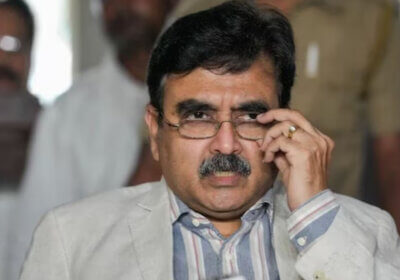The phenomenon of elected representatives switching to a different political party after winning an election is not new and this has been seen in the history of politics. Since the times of monarchs to present-day democracies, people have switched to different sides pre and post-election. Politics deals with a domain where attaining power is first and foremost for the players involved, in theory, political parties call themselves an ideological movement but in practice, the world does not produce enough characters who can keep it that way.
Lets us look at some of the probable forces behind this phenomenon:
Love of money
In the capitalist society, individual greed takes over and individuals are ready to throw away their loyalty to the highest bidder. This practice is a common sight in today’s India. In the last decade or so there have been so many instances when running governments fall down and another political party takes over, this happens with the help of the elected members of the political that is being dethroned from power. The amount of unregulated and unchecked money which goes into political party’s funds is unmatchable and hence such targetted candidates are offered crores of rupees to switch sides. MLAs for example are given anywhere between 10-25 Cr to switch sides.
Love of power
Individuals whose love for power takes over their ideological inclinations switch sides mid-way through a running government in order to get better placement in some higher position in the political ecosystem. This particular reason usually is of 2 types; First is when a politician of the ruling government has the support of sufficient members to topple the government and they make a deal with of power party. Second is when an individual has a power struggle going on within the party with the present chief and they then decide to switch sides even for a lesser of the same portfolio just to remove the internal rival away.
Under pressure
This has been the case in the past decade in Indian politics when government agencies have called upon the target candidates under various fresh and old cases to put pressure on them to switch sides. In this case, usually, the candidates have some dirt on their hands from their past which provides an easy opening for attack and pressure-building activity. Politicians then switch sides to save themselves from the law and punishment.
Ideological shift
In rarest the rare case, the ideological shift takes place, with the experience and evolution of one’s own political journey, one might come across a stage where they no longer identify with their older ideology and a newer or different movement takes over. This manner of switching sides is very rare and can be hardly believed given the rampant corruption that flows in the Indian political ecosystem. History of Indian politics has seen people forming up different opinions or getting attracted to different view point. For example, the founder of RSS which is the counter ideology of the Indian National Congress was himself a Congressman before he left INC and formed RSS. In some examples, people have drifted away from their existing political party and formed a new political movement of their own and tried gathering more and more people to join their newly formed ideologies.
For whatever reasons politicians switch sides post-election it harms the democratic ethos of the voters and the entire electoral system. When voters identify an individual they also identify or relate to the existing ideology of the political party of their leader and based on that they cast their vote, people feel cheated when governments are toppled by this swapping and switching phenomenon and they end up looking like a fool.
The people lose their power to vote and the democratic principle itself is mocked through this phenomenon.























Leave a Reply